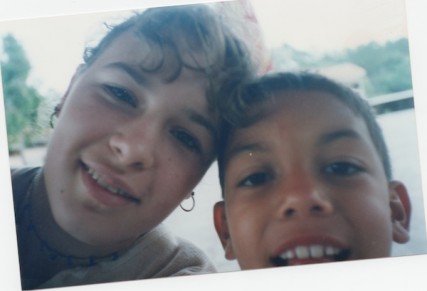
A picture of 9-year-old Adonis is stuck to Susanna Stutzman’s refrigerator.
He’s a little troublemaker, she says affectionately, but he’s a sweet kid.
She has his photo posted in the kitchen so her own young kids can see it, so they can talk about Adonis and learn about the hardships children in other parts of the world face.
Adonis lives in an orphanage in Honduras — the same one Stuzman, of Spokane, visited with her family when she was a teenager.
She’s had a soft spot for Nuestros Pequenos Hermanos International (Spanish for “Our Little Brothers and Sisters”) ever since. NPH is a network of orphanages in Latin America and the Caribbean.
Sponsoring Adonis as a “godparent” and exchanging letters with him is one way she continues to support the ministry.
Orphanage, though, isn’t the right word for NPH.
“The children aren’t adopted out,” explained Friends of the Orphans Regional Development Office Jenifer Priest. “It’s a home for life….The kids themselves don’t like the word orphan. They feel like they’re part of a family there.”
Since 1954 NPH has raised nearly 18,000 children in Mexico, Guatemala, El Salvador, Nicaragua, Peru, Bolivia, Honduras, the Dominican Republic and Haiti.
Locally, many individuals and organizations — including Gonzaga Preparatory School — support the ministry through the program Friends of the Orphans, which has earned a four star rating from Charity Navigator and is an accredited charity with the Better Business Bureau.
Priest is trying to get more local support for the ministry.
“A lot of the kids end up in the homes because of extreme poverty,” Priest said. “We don’t even know what poverty is compared to what they experience.”
Kids end up at NPH for various reasons. For some, parents who want a better life for their children can ask NPH to care for them. The parents are allowed to visit regularly, Priest explained. Siblings, she added, stay together.
Priest said NPH breaks the cycle of poverty through education. Nearly 40 percent of the donations the organizations receive goes toward education and this year 266 NPH students are attending college.
“There's more to donating to a child in a third world country than feeling warm and fuzzy inside. You can contribute to just about any of the hundreds of organizations out there and extend the life of a kid in need. Donate anywhere and your dollar equals a meal, a shirt, another day. But NPH is different because dollars don't just translate into days or meals or shirts,” Stuzman said.
At NPH dollars go toward textbooks, spiritual guidance, teaching a trade, teaching to farm and teaching about social justice, she said.
“Dollars contributed to NPH extend out of the houses and into the communities. So you're not just investing in one kid; you're investing in that kid's community,” Stuzman said. “The goal is not simply to extend lives of poor children, it is to create a quality of life that is empowering and leads to change. Not all organizations can say that.”
The Rev. C. Hightower, former director of University Ministry at Gonzaga, has been involved with NPH for many years, and is responsible for getting Gonzaga Prep involved. He said NPH “raises kids up to become more fully human.”
Sponsorship begins at $30 a month.
On June 20, two “pequenos” who were raised in NPH will be speaking in Spokane at the Hutton Settlement.
For information on their visit or on sponsoring a child contact Priest at (509) 270-2603.









